By Bob Hicks
Mr. Scatter is all lathered up in the lobby of Keller Auditorium, and Mrs. Scatter is at his side, underneath one of those big-bubble hairdrying doohickies. Each of us is posting live on opening night of Portland Opera’s “The Barber of Seville.” We’ll be updating our respective posts as time allows, so if you read them early, check back: There’ll be more.
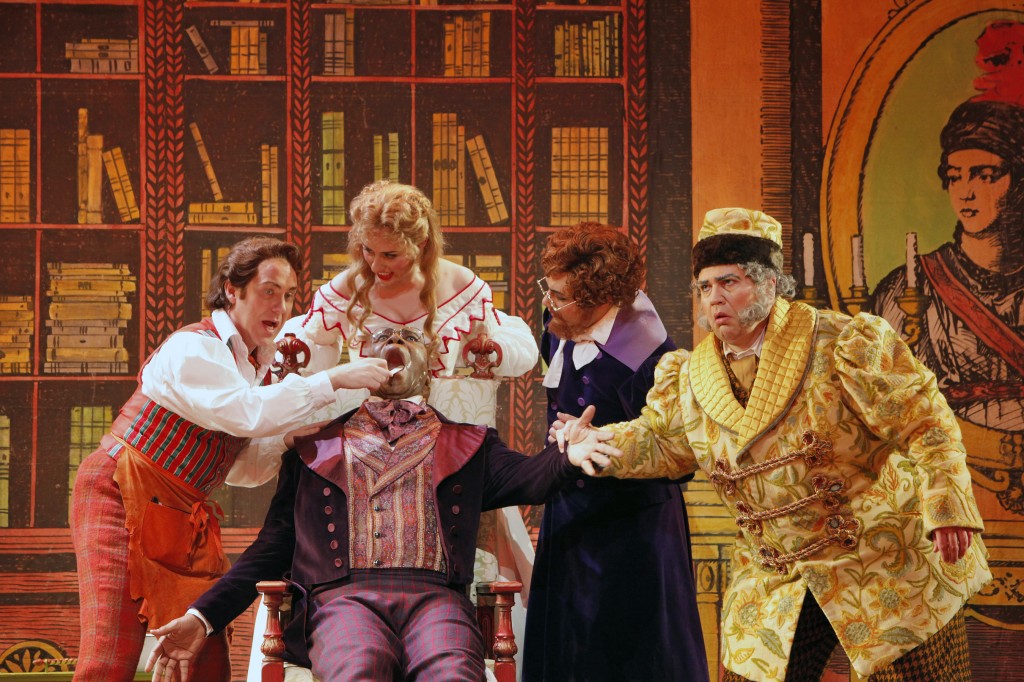
LIVE FROM ART SCATTER WORLD HEADQUARTERS, 5 P.M. FRIDAY, 2.5 HOURS BEFORE CURTAIN, MAY 7, 2010 —
Famous barbers in history:
— Sal “The Barber” Maglie, star pitcher for the Giants, Indians and Dodgers in the 1940s and ’50s, so nicknamed for his eagerness to brush back hitters with high inside fastballs in the vicinity of the jaw and neck. In baseball parlance, he gave ’em a close shave with a little chin music.
— Benjamin Barker, a skilled bladesman from Fleet Street in London, who, after being frightfully wronged by a corrupt judge, took to a life of crime as the infamous “demon barber” Sweeney Todd, casually slitting his customers’ throats so his accomplice, Mrs. Lovett, could grind ’em up and pop ’em into meat pies.
— Samuel Barber, American composer of works including Knoxville: Summer of 1915. In photographs he appears graciously clean-shaven.
— Figaro, the clever schemer of Seville, whose comic adventures among the rich and dissolute are celebrated in two of our greatest operas, Rossini’s 1816 The Barber of Seville and Mozart’s 1786 The Marriage of Figaro. A little confusingly, Marriage is a sequel to Barber, even though it premiered 30 years earlier. The mixup straightens out once you realize that both operas were based on even earlier plays by Pierre Beaumarchais.
It’s The Barber of Seville that brings us to the lobby of the Keller Auditorium tonight, where Portland Opera has invited us to blog on our impressions of the opening night performance of its new production.
Who are we?
— Mrs. Scatter, aka Laura Grimes, co-conspirator of this very blog, who is entering her own version of the evening’s events in another post right here at Art Scatter. I’ll be fascinated to read it once I’ve finished my own. Can this marriage be shaved?
— Brandi Parisi, morning host at All Classical Radio 89.9FM, and no doubt intimately familiar with the territory. She’ll be posting on All Classical’s Facebook page.
— Mike Russell, writer, cartoonist and proprietor of the brilliant CulturePulp, who’ll be creating a cartoon report on his evening at the opera.
— Mr. Scatter, aka me, Bob Hicks.
TO BE CONTINUED …
Continue reading Friday night live: Mr. Scatter gets a shave
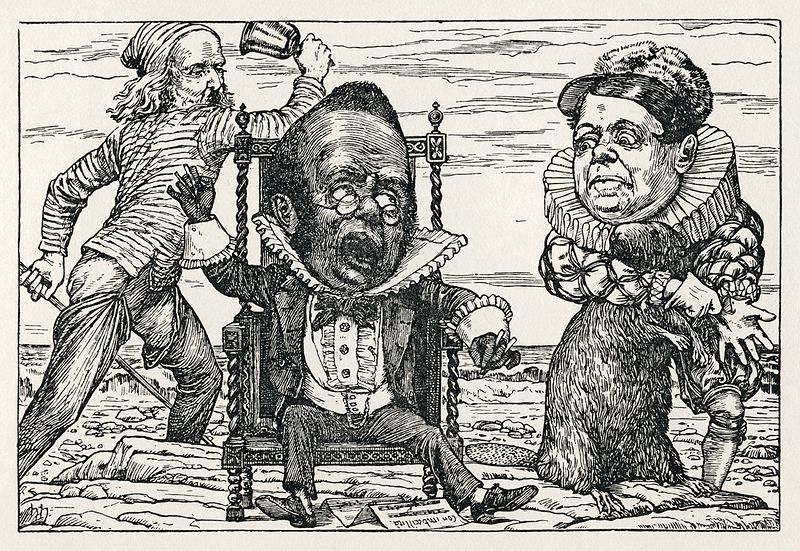
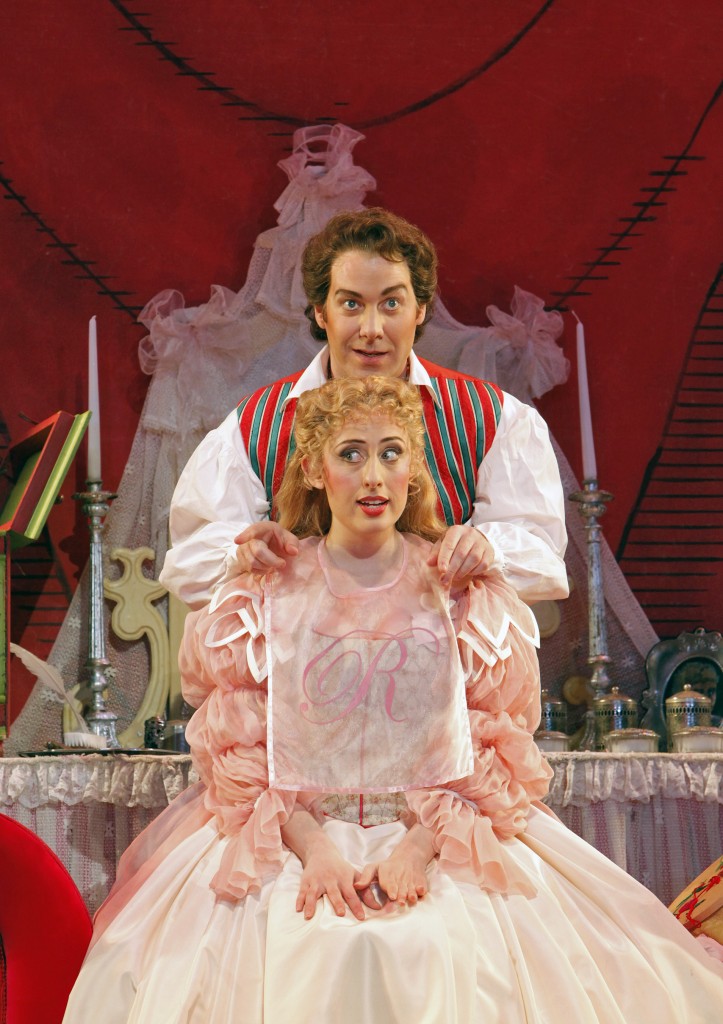 This four-hand feat, by the way, will come just before Mrs. Scatter’s departure on her own quest, this one to far London town on the trail of Tates
This four-hand feat, by the way, will come just before Mrs. Scatter’s departure on her own quest, this one to far London town on the trail of Tates 
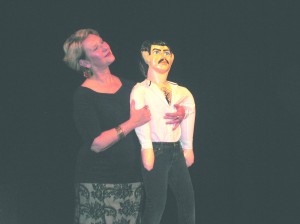 Howard is one of the founders of the story theater, and so it was fitting that his hour-long piece, The Adventures of Huckleberry Horowitz, kicked the festival off. Most everyone knows the mystical power of chicken soup, and most understand the pull of ritual and tradition in that thing we loosely call religion, so Howard’s audience, maybe 65 or 70 strong, rippled into laughter: the easy, familiar kind, the kind that says, “Yeah, we know what you mean.”
Howard is one of the founders of the story theater, and so it was fitting that his hour-long piece, The Adventures of Huckleberry Horowitz, kicked the festival off. Most everyone knows the mystical power of chicken soup, and most understand the pull of ritual and tradition in that thing we loosely call religion, so Howard’s audience, maybe 65 or 70 strong, rippled into laughter: the easy, familiar kind, the kind that says, “Yeah, we know what you mean.”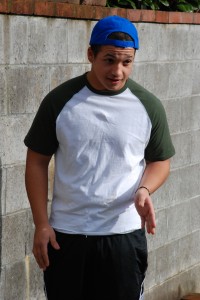
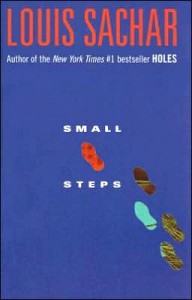 I am more than a little envious that he got this assignment. I’m the one who’s had my eye on this show for months. I’m the one who
I am more than a little envious that he got this assignment. I’m the one who’s had my eye on this show for months. I’m the one who 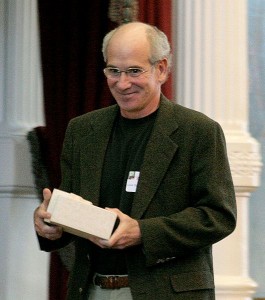 “Excuse me?” I said. “You got to meet him?”
“Excuse me?” I said. “You got to meet him?” “Rose’s life sometimes seems too exemplary to be true,” Nightingale writes. “Add some convenient coincidences to her tale — like meeting a bitter old shopkeeper in the Arizona desert and realizing he is the spouse she thought she had lost to Dachau — and Rose could easily be a case study rather than a character.”
“Rose’s life sometimes seems too exemplary to be true,” Nightingale writes. “Add some convenient coincidences to her tale — like meeting a bitter old shopkeeper in the Arizona desert and realizing he is the spouse she thought she had lost to Dachau — and Rose could easily be a case study rather than a character.”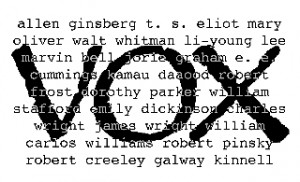 It’s the latest in Eric Hull‘s
It’s the latest in Eric Hull‘s  Waterbrook is basically a room with an entrance area and a door leading to what serves as a green room for the performers. Somewhere around the corner, down a broad-plank floor, is a restroom. On Saturday the performance space had a few rows of folding chairs for the spectators, a lineup of music stands up front for the six performers, and three chairs to the side for the performers who occasionally sat a poem out. In other words: all the tools you really need to create some first-rate performing art.
Waterbrook is basically a room with an entrance area and a door leading to what serves as a green room for the performers. Somewhere around the corner, down a broad-plank floor, is a restroom. On Saturday the performance space had a few rows of folding chairs for the spectators, a lineup of music stands up front for the six performers, and three chairs to the side for the performers who occasionally sat a poem out. In other words: all the tools you really need to create some first-rate performing art.

 And Westerwelle, the irrepressible onetime Storefront stalwart who scored a big hit with her Sophie Tucker show Soph: A Visit With the Last of the Red Hot Mamas, takes on a very different personality in the Northwest premiere of
And Westerwelle, the irrepressible onetime Storefront stalwart who scored a big hit with her Sophie Tucker show Soph: A Visit With the Last of the Red Hot Mamas, takes on a very different personality in the Northwest premiere of 
 Witnesses — those “I alone am escaped to tell you” chroniclers of catastrophe and adventure — are crucial figures in the world of the imagination. From the cautioning choruses of Greek tragedies to Melville’s wide-eyed sailor Ishmael, we’re used to the idea of the witness as a cornerstone of civilized life.
Witnesses — those “I alone am escaped to tell you” chroniclers of catastrophe and adventure — are crucial figures in the world of the imagination. From the cautioning choruses of Greek tragedies to Melville’s wide-eyed sailor Ishmael, we’re used to the idea of the witness as a cornerstone of civilized life. From the lofty perch of the present we stand as witnesses to time, looking back on history, rewriting it as we gain new reports from the trenches and rethink what we’ve already seen. We judge, revise, rejudge: In the courtroom of culture, the jury never rests.
From the lofty perch of the present we stand as witnesses to time, looking back on history, rewriting it as we gain new reports from the trenches and rethink what we’ve already seen. We judge, revise, rejudge: In the courtroom of culture, the jury never rests.
 MELODY FOR THE MEEK. Portland artist
MELODY FOR THE MEEK. Portland artist